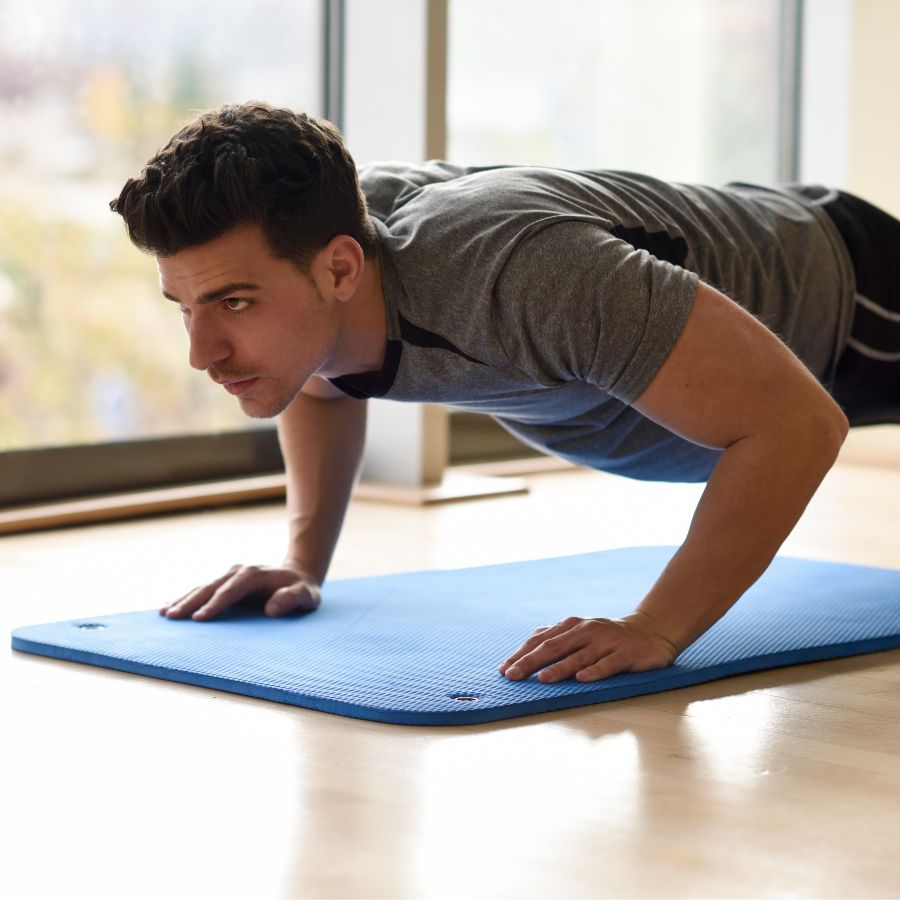
Try A Neuroscientist's Three-Step Mindfulness Exercise
In recent years, mindfulness practices or exercise have gained popularity. People from all walks of life have adopted mindfulness practices to boost mental and emotional health and reduce stress and anxiety in today's fast-paced and demanding environment. Individuals can feel more comfortable, focused, and present in each moment by practicing mindfulness for just a few minutes daily. Here are some prevalent opinions and thoughts surrounding mindfulness exercises.
What is Mindfulness Exercise?

Mindfulness exercise is a form of meditation in which one focuses on the present moment without judgment. Mindfulness aims to foster awareness and acceptance of one's thoughts, emotions, and bodily sensations. Various mindfulness activities, such as breathing exercises, body scans, and guided meditations, can accomplish this.
Also Read: Exercise Increases Brain Activity And Creativity!
Advantages Of Mindfulness Exercise
It has been demonstrated that mindfulness exercises provide various physical, mental, and emotional advantages, including:
- Better sleep: Mindfulness practice can help folks fall asleep more quickly and enhance the quality of their sleep.
- Enhanced emotional management: Mindfulness can help people become more aware of their emotions and regulate them more effectively.
- Enhanced physical health: Research indicates that mindfulness practices can benefit various physical health issues, including chronic pain and hypertension.
- Heightened self-awareness: Mindfulness can aid individuals in comprehending their thoughts, emotions, and actions, resulting in increased self-awareness and acceptance.
- Increased concentration and focus: Mindfulness can assist individuals in developing their attention and focus.
- Reduced anxiety and stress: Mindfulness has been found to reduce anxiety and stress symptoms effectively.
- Boosted immune system: Mindfulness is associated with enhanced immunological function.
- Increased empathy and compassion: Mindfulness can help people become more sensitive to the feelings and experiences of others, resulting in enhanced empathy and compassion.
These are just a few of the numerous benefits of mindfulness exercises, and the practice may be adapted to meet the requirements and preferences of each individual.
Also Read: Try This Traditional Tibetan Breathing Exercises To Awaken Your Inner Fire
Try The Three-Step Mindfulness Exercise Of A Neuroscientist
Here is a three-step mindfulness exercise that anyone, regardless of mindfulness expertise, can perform:
-
First, find a peaceful location where you won't be bothered.
Next, straighten your back and assume a comfortable sitting or standing position. Having a peaceful location for mindfulness exercises can boost the benefits of the practice in multiple ways:
- Creates a sense of peace: A tranquil setting can foster a sense of peace and peace, which is favorable to mindfulness and relaxation.
- Enhances concentration: The absence of external distractions can improve your concentration, allowing you to benefit more significantly from your mindfulness practice.
- Facilitates relaxation: A quiet environment can enhance the efficacy of mindfulness in lowering stress and fostering relaxation by eliminating distractions and generating a peaceful atmosphere.
- Promotes positive thought: A calm situation can be more conducive to studying, allowing you to focus more deeply on your ideas and feelings.
- Reduces distractions: A calm environment reduces distractions, allowing you to concentrate on your breath and the present moment, which is the essence of mindfulness practice.
Although a peaceful environment is preferable for practicing mindfulness, it is only sometimes essential. With sufficient practice, you may learn to cultivate mindfulness in any circumstance, regardless of the degree of noise and distractions.
-
Concentrate your attention on your breathing

Observe the sensation of air going in and out of your nose or mouth while you breathe normally. Focusing on your breath is an essential component of mindfulness exercises and has numerous benefits, including:
- Enhances concentration: By focusing on their breath, individuals can increase their engagement and attention, making it easier to remain in the present moment.
- Enhances emotional regulation: By focusing on the breath, individuals can increase their awareness of and control over their emotions.
- Facilitates relaxation: Focusing on the breath can lower heart and breathing rates, producing relaxation and calmness.
- Increases mindfulness: A significant part of mindfulness is focusing on the breath. It helps individuals remain present and avoid becoming lost in their thoughts and other distractions.
- Increases self-consciousness: Individuals can raise their self-awareness by increasing their awareness of their thoughts, emotions, and physical sensations by focusing on their breath.
- Reduces anxiety and tension: It has been demonstrated that focusing on the breath reduces stress and anxiety by soothing the neurological system.
Focusing on your breath during mindfulness activities can enhance your capacity to be in the present moment and reduce stress and anxiety, resulting in various physical, mental, and emotional advantages.
Also Read: Here Are 7 Ways Your Digestive Health Affects Your Athletic Ability-
Observe yourself drifting and gently return to your breath.
Repeat this for several minutes or as long as you desire. Refocusing on your breath when your attention drifts during mindfulness activities has benefits:
- Encourages awareness: By focusing on your breath, you practice the fundamental mindfulness principle of being completely present and aware in each moment.
- Enhances mental adaptability: By regularly returning your attention to your breath when your mind wanders, you develop the cognitive flexibility and resilience necessary to remain focused and present despite distractions and challenges.
- Heightens self-awareness: By becoming aware of your thoughts and recognizing when your mind wanders, you can understand your thoughts and habits more deeply.
- Improves concentration and attention: By gently returning your attention to your breath when your mind wanders, you enhance your ability to concentrate and focus, which has long-term advantages for your mental and emotional health.
Allowing your mind to wander is a typical part of mindfulness practice, and gently returning your attention to your breath is essential for building mindfulness and concentration abilities. Upon completing the practice, take time to reflect on how you feel. Attend to any arising physical sensations, emotions, and thoughts.
The Takeaway
YourHappy Collagen Powder (Advanced 2.0)

Key Benefits
-
Youthful, Smooth & Supple Skin
-
Reduced Wrinkles and Fine Lines
-
Increased Firmness & Elasticity
-
Deeply Hydrated Skin, For a Rested & Refreshed look
-
Reduced Under Eye Dark Circles, Acne, Blemishes & Pigmentation
-
Improved Follicle Strength & Increased Keratin Production for Radiant Hair
-
Improved Gut Health For Clear Glowing Skin
-
Strong Joints, Muscles & Bones
The Three-Step Mindfulness Exercise developed by neuroscientists is a simple yet effective method for enhancing mental and emotional health. Overall, there are numerous thoughts and viewpoints surrounding mindfulness exercises, and the advantages and effects of mindfulness may vary widely from individual to individual. However, mindfulness's growing body of research supports its use for mental and emotional well-being.
Also Read: Why Your Exercise Routine Should Include Collagen
FAQ
What is the three-step mindfulness exercise?
The three-step mindfulness exercise is a simple but powerful exercise that can help you reduce stress and increase your focus. It involves taking a few minutes to focus your attention on your breath, your body, and your surroundings.
How does the three-step mindfulness exercise work?
The three-step mindfulness exercise works by helping you to shift your attention away from distracting thoughts and focus on the present moment. By focusing on your breath, your body, and your surroundings, you can cultivate a sense of calm and relaxation.
How often should I do the three-step mindfulness exercise?
You can do the three-step mindfulness exercise as often as you like, but it is recommended that you practice it at least once a day. Many people find that practicing mindfulness in the morning helps them start the day with a clear and focused mind.
Can I practice the three-step mindfulness exercise anywhere?
Yes, you can practice the three-step mindfulness exercise anywhere, whether you are at home, at work, or on the go. You can do it for a few minutes or as long as you like.
What are the benefits of practicing mindfulness?
Practicing mindfulness has been shown to have many benefits, including reducing stress, improving mood, increasing focus and productivity, and enhancing overall well-being. It can also help you develop greater self-awareness and improve your relationships with others.


